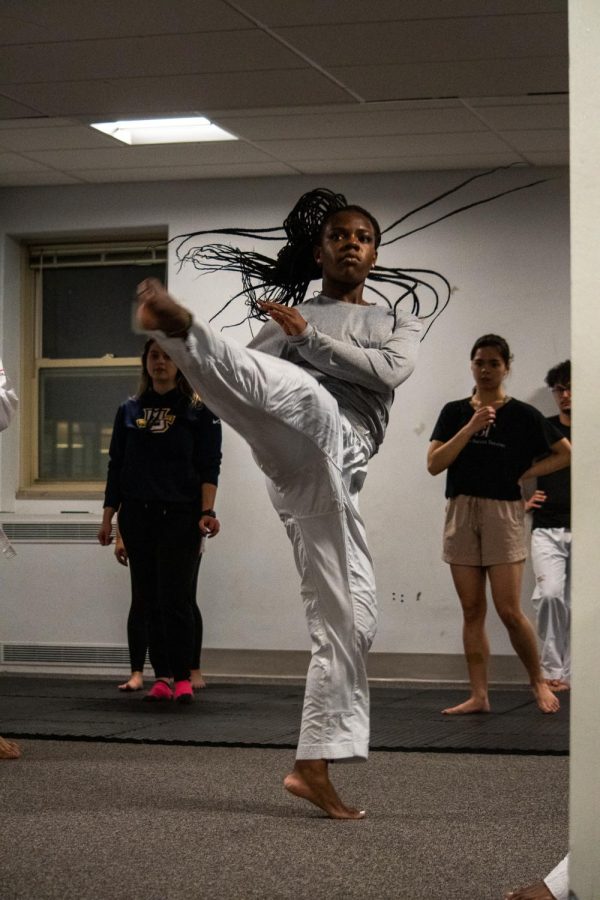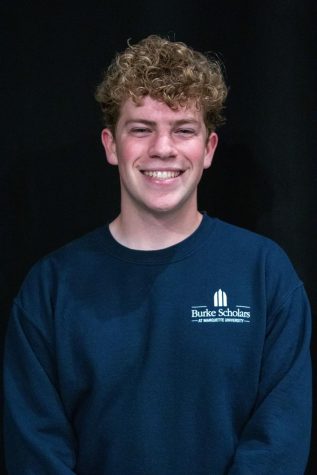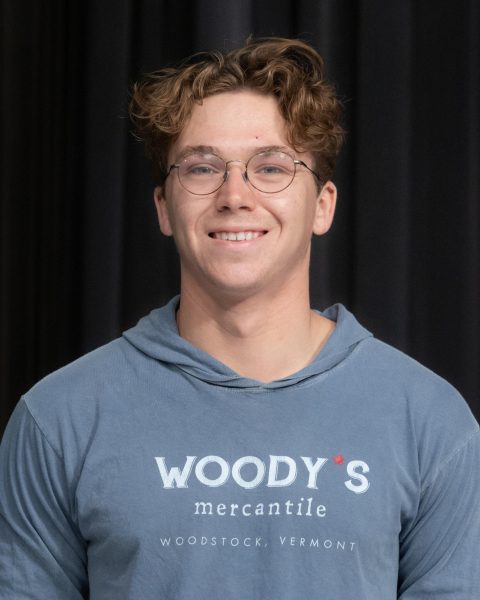Taekwondo is a whole lot more than people wearing colored belts and kicking things.
“Taekwondo is a lifestyle,” Marquette alum and club taekwondo team coach Matthew Lee says. “You get into it to learn a lot about Korean culture, about how your body is able to move and controlling the mind.”
Taekwondo traces its roots back more than 2000 years ago on the Korean Peninsula. The first modern taekwondo school opened up in Seoul in 1945.
Taekwondo is in Lee’s blood. His grandfather is Grandmaster J.K. Lee, a recipient of the Top Master Instructor award from the South Korean government. He has also opened taekwondo schools around Wisconsin and even trained the Marquette men’s basketball team.
“I’ve been doing this since I was five,” Lee says. “My father opened his school when I was four years old. That’s when I started. So I’ve been doing it now for 18 years.”
Discipline is one of the key teachings of taekwondo.
Senior club president Jordan Towe says the discipline he has learned through taekwondo has helped him grow in all aspects of his life.
“You can really do some serious damage to somebody who might not be trained. So if you’re going to take these skills and apply it to anybody else, you need to know how to have self control and discipline to hold yourself back,” Towe says. “Not only does it help you master your emotions, and control yourself physically, emotionally and mentally.”
Towe has been able to achieve some of his life goals because of the hours he has spent training in the Humphrey Hall practice room.
“It gives you discipline so that when you’re going to achieve something, you have the discipline to do it,” Towe says. “As well as the motivation and being the person who wants to.”
That’s a common experience among club taekwondo members. Junior club member Jefferson Kim says his improvement in taekwondo has helped him find his voice.
“It’s building up your confidence, your self esteem,” Kim says. “You can apply it to your personal life. For example, when I was working as an intern, I was building up my confidence to be louder and more direct to be more of a leader.”
Finding your voice and becoming a leader is an experience that junior club member Oscar Hernández says has been a major focus for him throughout his learning.
“Being in taekwondo, you have sets of rules and ethics that come with it,” Hernández says. “In the back of your mind having those intentions with your mindset, it builds a foundation to take that out into the real world. It’s things that really do translate in the work and classroom environments, building leaders in our community.”
In practice, mistakes are common, but Hernández says that the connection between the team allows for mistakes to be valuable learning experiences.
“When it comes to practice, we recognize it as a place where you can make mistakes,” Hernández says. “You want to make mistakes in practice because then you have the people of color belts that have more experience that can help you correct those moments.”
During practice, the taekwondo team fills the space with laughter.
“You’re jumping, moving around and things get slippery,” Hernández says. “When people fall, it’s a good laugh, but you have to always make sure they get back up and help each other out.”
Sharing smiles, laughing and having fun provide a contrast to the discipline of the sport. Hernández says that having a successful group depends on the balance of those factors.
“That laughter, goofiness, but coming together so often, you start building that community,” Hernández said. “It eventually becomes a routine where everybody just gets used to each other.”
The strong bonds within the team are crucial Lee says, because learning perseverance is harder alone than with others.
“With the wandering mind comes the quick snap reflexes to give up on something that’s hard, but they’re learning to persevere through it,” Lee says. “It’s just one of the few ways that we are able to spread the love of taekwondo.”
This story was written by John Gunville. He can be reached at john.gunville@marquette.edu or on Twitter @GunvilleJohn.





